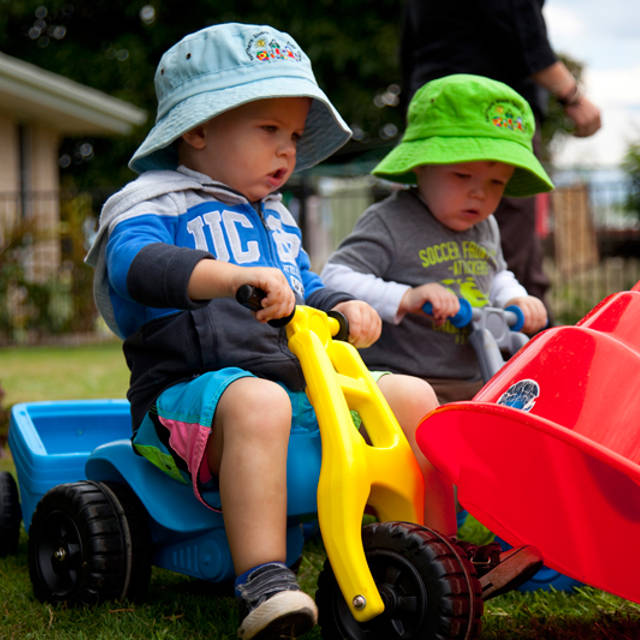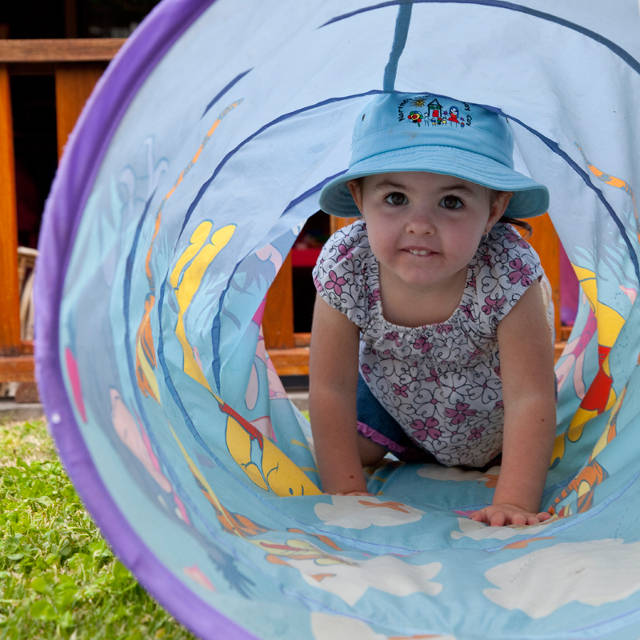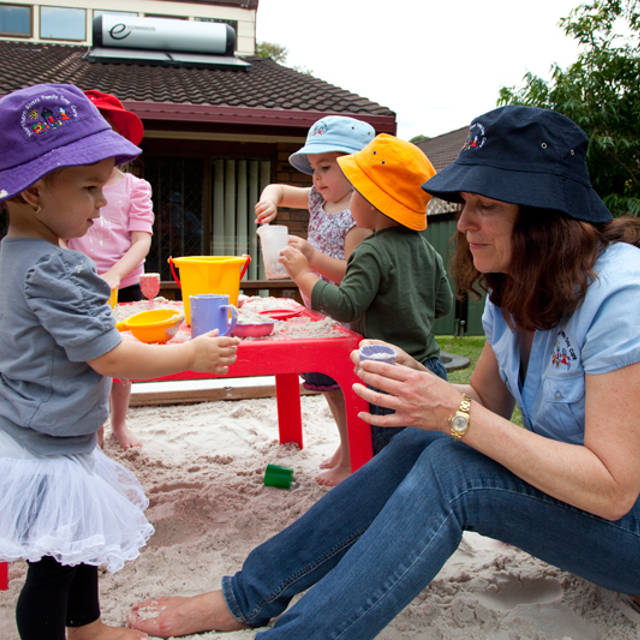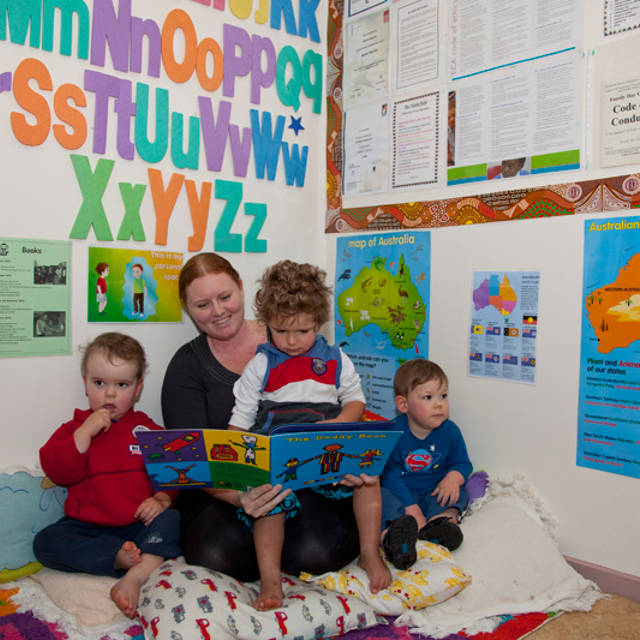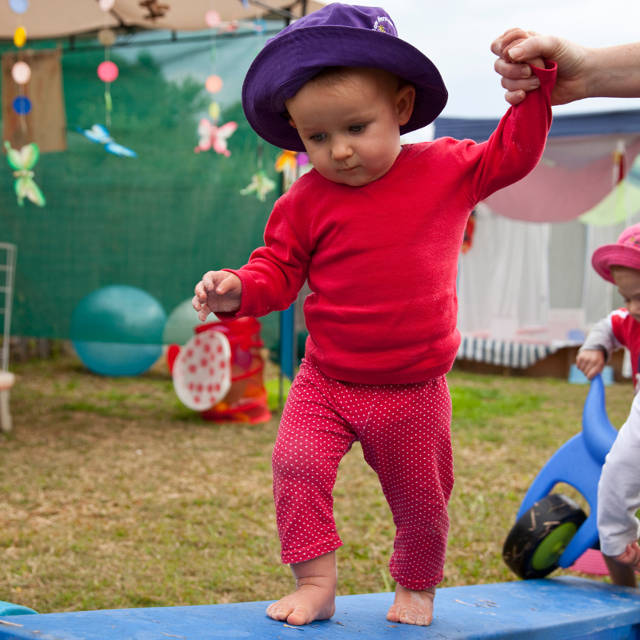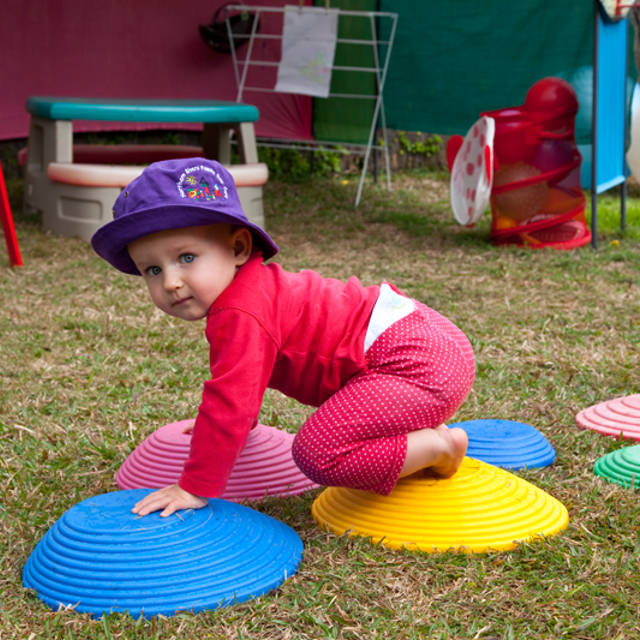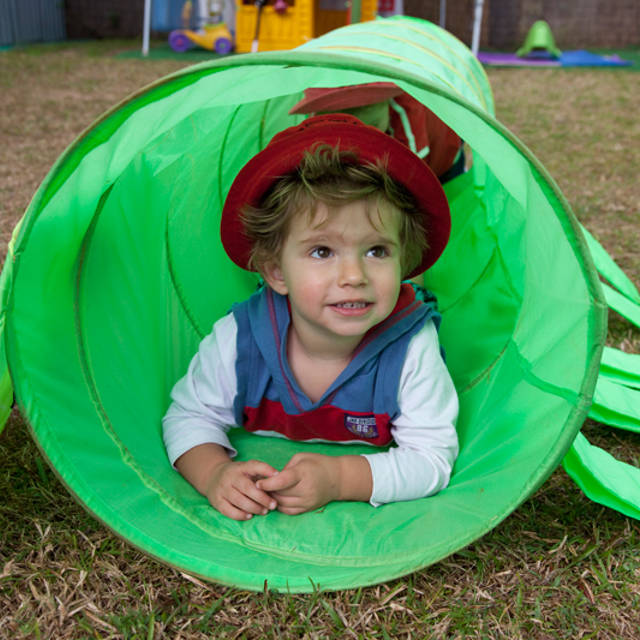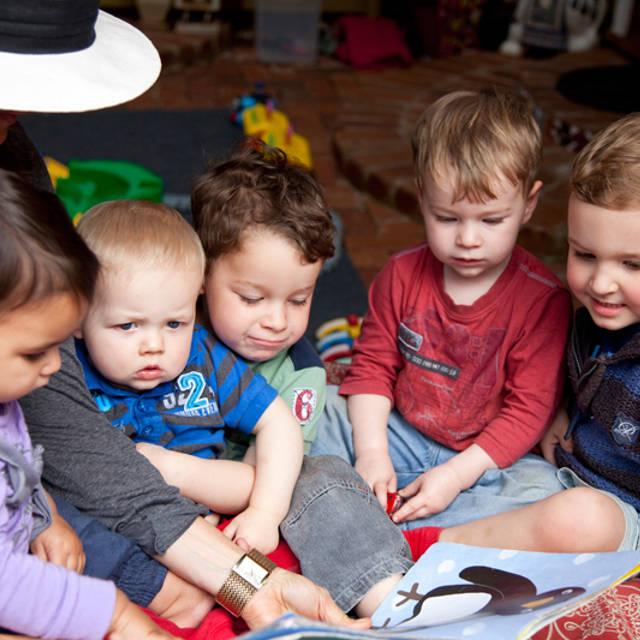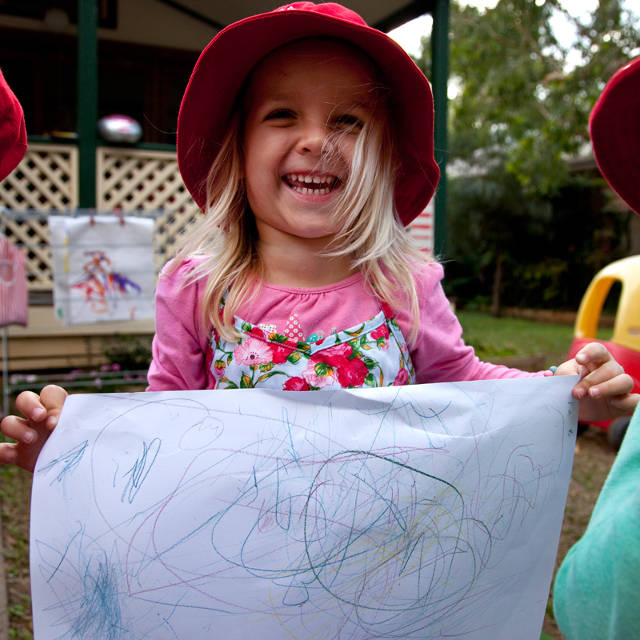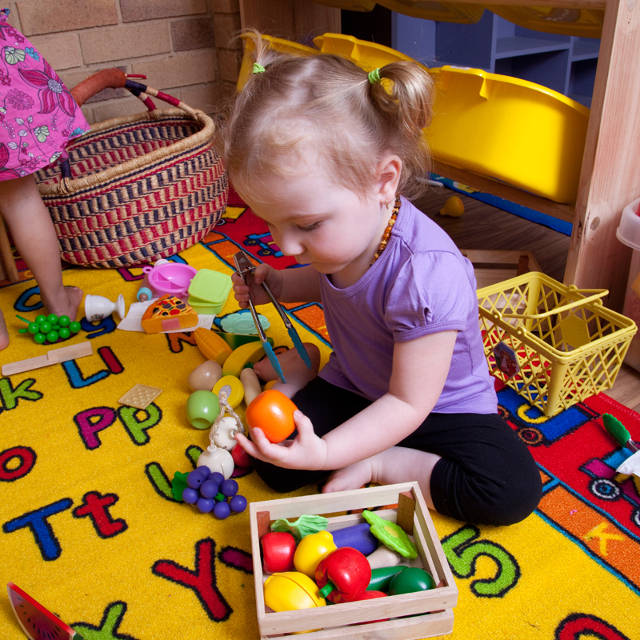What Is Family Day Care?
Family Day Care provides quality, affordable professional childcare for children up to 13 years of age in the homes of registered Family Day Care Educators. The Family Day Care Scheme is managed by a coordination unit which is staffed by experienced professionals who support the provision of quality care and manage the scheme.
FDC is a government funded and subsidised care and education service. Parents/Carers using this service are eligible for Child Care Subsidy. Northern Rivers FDC is regulated and guided by the Education and Care Services National Regulations and the National Quality Framework. FDC is provided under license to small groups of children in a Registered Educator’s home. Each FDC Educator is selected, trained, supported and supervised by Northern Rivers FDC, a division of Northern Rivers Children’s Services Ltd. You can read more about NRCS here.
About Our FDC Educators
The Selection of FDC Educators is based on a careful assessment of skills and personal attributes, and the suitability of the physical home environment. Educators must be competent, professional, ethical and compassionate. They must demonstrate a strong commitment to identifying and responding to the emotional and developmental needs of the children in their care. Our Educators are self employed sole operators of a small business.
Are FDC Educators Qualified?
From July 2024, all Educators will have Cert III in Education and Care or higher, before commencing as a FDC Educator. Currently most of our Educators have a Certificate lll in Children’s Services with many holding a Diploma in children’s services. FDC Educators are also required to hold a current approved First Aid, Anaphylaxis Management, Emergency Asthma Management training certificates and Public Liability Insurance.
They are also required to undergo training in H&S, Risk Assessment, Food Handling, and Child Protection, as well as initial training in Administration, Health Safety and Hygiene, Child Development, Communication, Programming, Play & Play Resources, Regulations & Quality Practices, Settling and Partnerships, and Guiding Children’s Behaviour. In addition, Educators receive ongoing support, training and resources throughout the year. Our Educators and adult members of their households undergo a Working with Children Check before becoming registered with NRFDC.
How Are FDC Educators Supported & Monitored?
Unannounced regular visits to every FDC Educator are carried out by our qualified and highly experienced FDC Coordinators. These home visits support Educators and continually assess the quality of care and safety of the environment.
What Is A FDC Coordinator?
Our FDC Coordinators are all qualified Early Childhood professionals. FDC Coordinators are responsible for providing a group of FDC Educators with professional support. They do this by regular visits to their homes, as well as phone and email contact. Coordinators also supervise playgroups, present training sessions, provide printed resources and organise functions such as excursions and networking outings.
The FDC Coordinator who visits your FDC Educators home will monitor your child/ren to ensure they are experiencing an environment which is safe and stimulating for all area of their development. They will assist the Educator to formulate programs that will meet each child’s individual needs. Coordinators generally develop a relationship with each of the children in care through their interactions during visits, provision of interesting learning experiences, and participation with the children in playgroup activities.
Co-ordinators can assist parents by providing information on topics of interest and assist with issues such as separation anxiety or developmental concerns. Your FDC Coordinator is always available to discuss any aspect of your child’s care. Contact details will be provided by your FDC Educator.
Why Is FDC Different From 'Centre-Based' Care?
Because Family Day Care takes place within the FDC Educator’s home it is ideal for young children and babies. A small group of children means your child will receive one to one attention whenever it is needed. The small group also allows friendships between children to develop quickly.
Family Day Care provides quality care in home like environment. Your Educator gets to know your child and your family in a way that a large childcare centre cannot. When you arrive at your FDC, you are greeted every day by the same experienced professional Educator.
Why Northern Rivers Family Day Care?
We are proud to be one of the largest FDC service in the Northern Rivers and one of the largest in NSW. Our resources are unmatched, and include toy libraries, a fleet of buses, four playgroup venues, training facilities, two coordination offices, resource libraries and more.
We have been operating since 1980, expanding from Lismore up to Tweed Heads. We have a number of relief Educators who are available to continue care in the primary Educators home. This availability assists Educators to provide consistent care during holidays and emergency leave.
What About Health & Safety?
Northern Rivers Family Day Care places a strong emphasis on health and safety. During each visit to the Educators home the Coordinator will scan the area for potential hazards and discuss any risk management practices that need to be put into place. Formal Health and Safety checks are carried out by our Coordinators and documented on a regular basis.
Educators are kept up to date on Health and Safety issues by the provision of relevant fact sheets and ongoing training. The regular ‘Educator Bulletin’ provides constant updates on Health and Safety issues in the community, toy and equipment recalls, and information from relevant health authorities. Each of our FDC Educators has a full copy of our Policy and Procedures Manual available for families to view our Health and Safety policies. Each Educator also is provided with a ‘Staying Healthy -Preventing infectious diseases in early childhood education and care services Manual’ to provide a reference on all aspects of hygiene, prevention of illness strategies and infectious diseases data.
Playgroup, Excursions & Routine Outings
Northern Rivers Family Day Care places an important emphasis on playgroup participation, and actively encourages all educators to attend these routine outings. Parents are also welcome to attend playgroups which are provided in Lismore, Tweed heads, Kyogle, and Casino. Playgroups are funded by the Scheme and are free of charge to educators and parents. Transport is provided on request for educators. All our FDC buses are equipped with child safety restraints suitable for the ages of the children they carry.
Networking is another routine outing. Networking involves 1 – 3 educators arranging a ‘get together’ in one educators home. As with all excursions an approved risk assessment is required. Risk assessments examine possible risks associated with the outing, particularly in relation to getting the children to and from their primary educator’s home and the networking location. Parents must be notified in advance of the visit, agree to the outing, have details of the times and location, and be shown the approved risk assessment. Networking gives children the chance to interact in a larger group and to be familiar with other FDC educators in the event that back-up care is required.
Excursions to the local library, rescue helicopter and the fire stations are organised by Coordinators to give children experiences in the wider community.
What If My Child Has Special Needs?
Northern Rivers FDC believes children with additional needs should be integrated into mainstream Family Day Care. Our Educators are encouraged and supported to care for children with additional needs.
Educators can receive additional Commonwealth payments depending on a child’s care needs. Our specialist staff will assist Parents and Educators to apply for additional needs funding. With parental consent our specialist staff can also conduct child assessments, formulate programmes, provide on-going support, and make relevant referrals to other agencies. For more information please contact one of our offices.
What Happens When Children Are Sick?
If your child becomes ill or has an infectious disease, you will be asked to keep them out of care until the symptoms are no longer present or until you are able to provide a medical certificate stating that your child is no longer contagious. The exclusion policy will be applied equally to all the children in care. We recommend that families organise a support person to provide care for your sick child if you cannot be available.
What Will Happen During Holiday Periods?
To provide quality care FDC Educators need to have regular holidays. NRFDC offers a service to provide backup care with an alternative Educator for your child during this period. We also offer the option to Educators to contract a Relief Educator to work from their own premises during holiday and sick leave periods. The relief Educator system provides stability for children and families as the care continues uninterrupted at the same FDC residence.
What Will My Child's Day Be Like At FDC?
Northern Rivers Family Day Care Educators are now working within the guidelines of the ‘Early Years Learning Framework’. The Framework’s vision is for all children to experience play-based learning that is engaging and builds success for life. It is a guide for early childhood educators who work with children from birth to five years.
Using the Early Years Learning Framework educators will listen, watch and talk to your child and you, to develop learning programs which are based on your child’s ideas, interests, strengths and abilities. Your FDC educator will regularly discuss your child’s progress, and may use photos and examples of your child’s work to show what your child is learning, how they are developing and what particular learning interests them.
FDC Educators have a flexible routine for each day that assists the children in their care to develop a sense of security and belonging. Routines are formed around mealtimes and care routines such as toileting, nappy change and rest time.
How Much Does FDC Cost?
Family Day Care fees are competitive and government subsidised for families who are eligible for Child Care subsidy and Additional Child Care Subsidy. Your Child Care Subsidy percentage is based on taxable income. Fees are generally charged in accordance with a Fee Schedule. Click here to download Fee Schedule.
Our office provides a complete service in relation to FDC fees, including calculating CCS entitlements, out of pocket expenses, and assistance with lodging applications for CCS.
What Types Of Care Are Available?
Because FDC Educators have no more than four children under school age, or up to seven under 13 years (including their own), they are able to offer individual attention to each child in their care. It is our general policy that our FDC Educators will have a maximum of 3 children less than 2 years of age. Therefore, older brothers and sisters may be in care before and after school, maintaining the family atmosphere. Child Care Subsidy (CCS) and Additional Child Care Subsidy (ACCS) are available for all types of childcare in accordance with Centrelink requirements.
Full Time Care
Child Care Subsidy is available for up to 100 hours per fortnight per child for work or study purposes.
Part Time Care -1
Part-time workers (0 to 8 hrs p/f) and parents/carers not in paid work are eligible for up to 24 hours per fortnight of subsidised childcare.
Part Time Care -2
Part-time workers (8 to 16 hrs p/f) and parents/carers not in paid work are eligible for up to 36 hours per fortnight of subsidised childcare.
Casual Care
When the days and hours are not known on any given week.
Rostered Care
Is applicable when a families work commitments are on a rotating roster basis. Please discuss your roster with the office to confirm eligibility for absences covered by Child Care Subsidy.
Before & After School Care and School Holiday Care
Available for school children under 13 years as part of Family Day Care, In Home Care (see below) or in selected schools where we operate OSHC services.
Emergency Care
Is required as a ‘once only’ for a family in a crisis situation. Approval for this type of care is granted by an Authorised Supervisor on a case by case basis. Special reduced fees may be available for families experiencing short-term financial difficulties. *Back-up care *- Can be provided by another Registered FDC Educator if required while your regular Educator is either on leave or is sick. It is the responsibility of the parent to contact the office and request what care is required during this time.
Relief Care
A registered FDC Educator may provide childcare from the home of the primary FDC Educator, subject to the consent of parents and the primary Educator. The standard of care and supervision is the same.
In Home Care
In Home Care was introduced in June 2001 as a flexible form of child care designed to accommodate the needs of families for whom other forms of Australian Government approved child care is not suitable. Unlike other child care types, IHC is only available to a child who meets certain eligibility criteria as prescribed by law. Please click here for more information.
What Is The Waiting List Arrangement?
A waiting list of all applications received is maintained by the Coordination Unit. Applications are prioritised and placed in order on the list using the priority of access guidelines developed by the Department of Family and Community Services. Click here for more information about priority of access.
A range of educational experiences are offered in Family Day Care. Here are just a few:
Visual Arts
painting, drawing, stamping, collage, clay, dough, cutting, box construction, printing.
Numeracy
throughout the day, Educators incorporate the opportunity to count, add and subtract. Equipment such as matching games, sorting activities, pattern exploration games, measuring tools are available to children.
Construction
each Educator has a range of blocks, construction sets and individual items to enhance construction such as cars, animals, dinosaurs, sea creatures, material pieces, natural items, and many more.
Music & Movement
musical instruments are used in groups and individually, singing games, finger plays, dancing sometimes with props (scarves, ribbons, bells etc.)
Dramatic Play
children are provided with a range of props, dress ups, equipment and real life items to encourage pretend play, exploration, investigation, and social interaction. These resources are often located in cubbies, tents, home corners, and sandpits to extend the possibilities.
Literacy
children will have access to a range of drawing materials, paper, cardboard, word/letter games, books for all age groups, word/letter posters and puzzles. Educators label children’s artworks and belongings draws and assist older children to commence writing their own names and those of others.
Social
children are provided with a care environment that promotes secure and nurturing relationships between children. Friendships are formed with the guidance of the Educator who encourages children to feel confident, respected and valued as individuals. Social experiences include; group activities, turn taking opportunities, role play, and responsibilities to others that promote a sense of belonging to the FDC group.
Science & Environment
children are provided with opportunities to discover, investigate and learn about their natural world. Educators are now incorporating recycling, water conservation and respect for the environment in their routines. Science equipment such as magnifying glasses, binoculars, magnets, measuring cups, weight scales, light boards and experimentation supplies are also made available to children.
Communication
included in the program are small group experiences which encourage communication. Discussion, songs, finger plays, games, puppets, photo books, story-telling and dramatic play provide opportunities for children to communicate.
Physical Development
outdoor play including obstacle courses, bikes, ball games, tunnels, play gyms, rockers, group games, sandpit, water play (sprinklers, spray bottles), set up and pack up, carrying, hand washing and other self help skills are all part of the program.
Relaxation & Quiet TImes
individual children’s rest needs are incorporated into the routine each day. Relaxation music, story books, story CD’s, soft toys are provided to give children the opportunity to rest. For children who are old enough go through the day without a rest quiet activities are provided.
